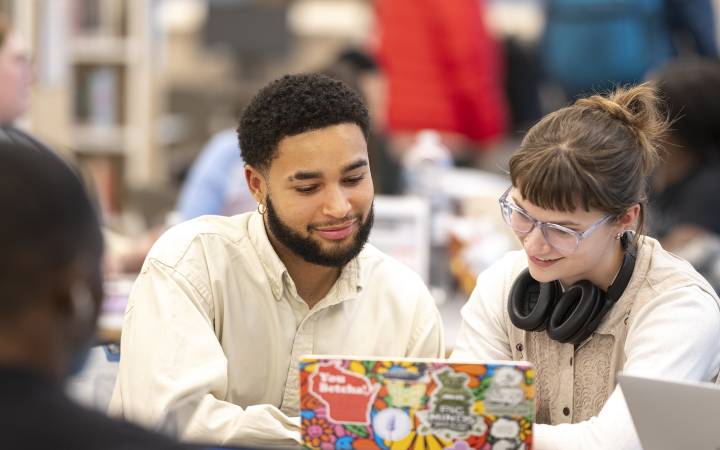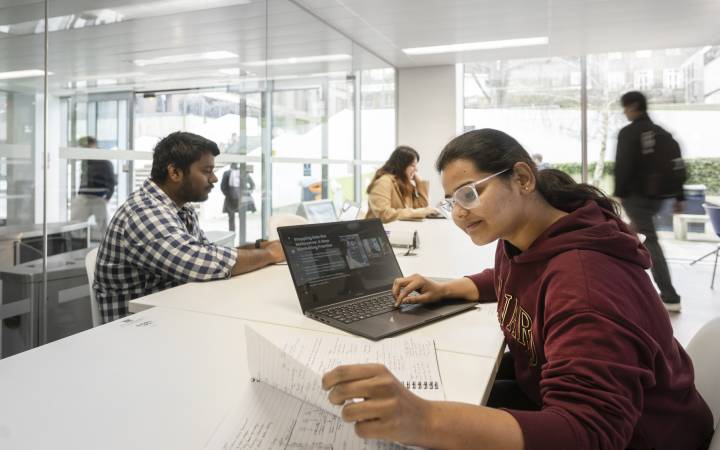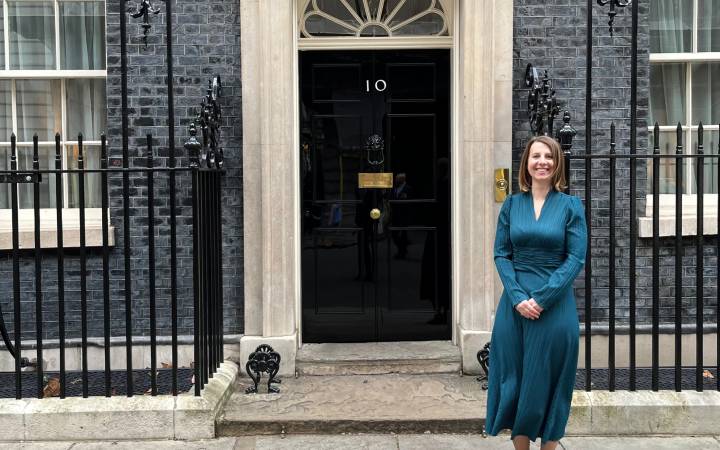Historic sites benefit from academic support of universities, says expert
Posted Wednesday 16 June 2010
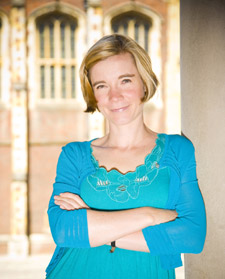 Some of Britain's most important historic sites receive economic and social benefits from the academic support provided by universities, according to Dr Lucy Worsley, Chief Curator for Historic Royal Palaces, the independent charity which looks after Hampton Court Palace, Kensington Palace, the Banqueting House, Kew Palace and the Tower of London.
Some of Britain's most important historic sites receive economic and social benefits from the academic support provided by universities, according to Dr Lucy Worsley, Chief Curator for Historic Royal Palaces, the independent charity which looks after Hampton Court Palace, Kensington Palace, the Banqueting House, Kew Palace and the Tower of London.
Dr Worsley cited the example of Hampton Court's Henry VIII: Heads and Hearts exhibition, which benefited from an innovative, three-year Knowledge Transfer Partnership between Historic Royal Palaces and Kingston University. "The resulting exhibition from our work together has been a huge success economically and culturally," Dr Worsley said. "It has helped to boost our visitor numbers to the highest level for a decade, and that income is crucial to ensuring Hampton Court Palace is looked after and kept open for people all over the world to visit.
Many people are surprised to learn that Historic Royal Palaces receive no funding from the government or the Crown. By working with the University, we are able to tell our visitors the story of Henry VIII in an engaging, easy-to-understand way, but behind what they see during their visit lies a mountain of extremely in-depth academic research. Our collaboration with Kingston is really enriching our visitors' appreciation and understanding of history."
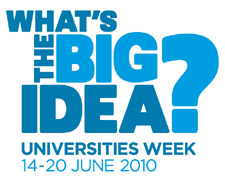 Kingston's links with Historic Royal Palaces are just one example of how work carried out at a local level can have a positive knock-on effect nationally and internationally, Edward Davey local MP and newly-appointed Minister in the Department for Business, Innovation and Skills said. "Our universities and further education colleges are fundamental to the success of our modern society," he explained.
Kingston's links with Historic Royal Palaces are just one example of how work carried out at a local level can have a positive knock-on effect nationally and internationally, Edward Davey local MP and newly-appointed Minister in the Department for Business, Innovation and Skills said. "Our universities and further education colleges are fundamental to the success of our modern society," he explained.
"From a government policy point of view, we have to make sure we are competitive in the globalised world, and we are only going to be able to compete with countries such as China and India if we ensure people have the skills, education and knowledge that they need. These collaborations are one way of spreading academic knowledge and excellence beyond the walls of the University for the benefit of all."
Mr Davey pointed to Kingston's Rose Theatre as another example of how universities could benefit the wider community. Stephen Unwin, Artistic Director of the Rose Theatre, stressed that the theatre would not even exist without the support of the University and the local authority. "Thanks to them, we're producing shows - such as A Midsummer Night's Dream, starring Judi Dench - which are achieving national and international recognition," Mr Unwin said. "These simply would not happen without the University."
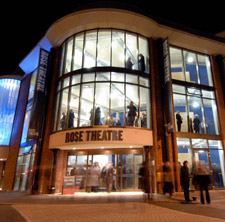 He added that the Rose would like to develop its links with Kingston University further to collaborate on research projects, especially work on Shakespeare. "We're an all-embracing, open-minded and inclusive theatre which welcomes people from all over the world, just like the University, and that has a positive effect nationally."
He added that the Rose would like to develop its links with Kingston University further to collaborate on research projects, especially work on Shakespeare. "We're an all-embracing, open-minded and inclusive theatre which welcomes people from all over the world, just like the University, and that has a positive effect nationally."
Kingston University's Vice-Chancellor, Professor Peter Scott, praised the success of the University's collaboration with The Rose and its work with Hampton Court, which also included a successful academic conference on Henry VIII and a series of public lectures. He added that Kingston graduates came to the University from across the country and beyond, and took the skills they learnt around the world. "Today's graduates are tomorrow's citizens," Professor Scott said.
"Graduates are more likely to vote, more ready to participate in voluntary organisations, more tolerant and liberal - they are even less likely to commit crimes. This is not because graduates are better than everyone else, it is that they have had more opportunity to fulfil themselves and realise their potential. Of course, that should be a universal right, which is why universities like Kingston committed to extending opportunities and widening participation make such an important contribution to the future of our country and our world."
Universities Week
The inaugural University Week is taking place from 14-20 June 2010, and aims to increase public awareness of the wide and varied role - economic, social and cultural - of the UK's universities. More than 100 universities and linked organisations are involved in the week.
Find out more about the campaign by joining the Universities Week Facebook fan page www.facebook.com/ukuniversities.
For regional media enquiries about Universities Week, contact: Ian Morton at ian.morton@universitiesuk.ac.uk, 020 7419 5424.
For national media inquiries about Universities Week, contact: Victoria Clarke at victoria.clarke@kindredagency.com, 020 7612 8816.
Arts and Culture
Across the UK, three-quarters of a million people attended free public lectures at UK Higher Education Institutions during 2007-08, according to figures compiled by Universities UK. In the same period, half a million people attended free performances at UK universities, and University-hosted exhibitions - often free of charge - attract around five million visitors a year. There are nearly 1,000 'spin-out' companies, formed when the results of university research produce products or services that have a high chance of creating wealth. These employ nearly 14,000 people with a combined turnover of £1.1 billion in 2007-8.
Historic Royal Palaces
Historic Royal Palaces is the independent charity that looks after the Tower of London, Hampton Court Palace, the Banqueting House and Kew Palace. It helps everyone explore the story of how monarchs and people have shaped society, in some of the greatest palaces ever built. It receives no funding from the Government or the Crown, so it depends on the support of visitors, members, donors, volunteers and sponsors. These palaces are owned by The Queen on behalf of the nation, and Historic Royal palaces manages them for the Secretary of State for Culture, Media and Sport. It believes in four principles. Guardianship: giving these palaces a future as long and valuable as their past. Discovery: encouraging people to make links with their own lives and today's world. Showmanship: doing everything with panache. Independence: having its own point of view and finding new ways to do its work. www.hrp.org.uk Registered charity number 1068852.
Contact us
General enquiries:
Journalists only:
- Communications team
Tel: +44 (0)20 8417 3034
Email us
